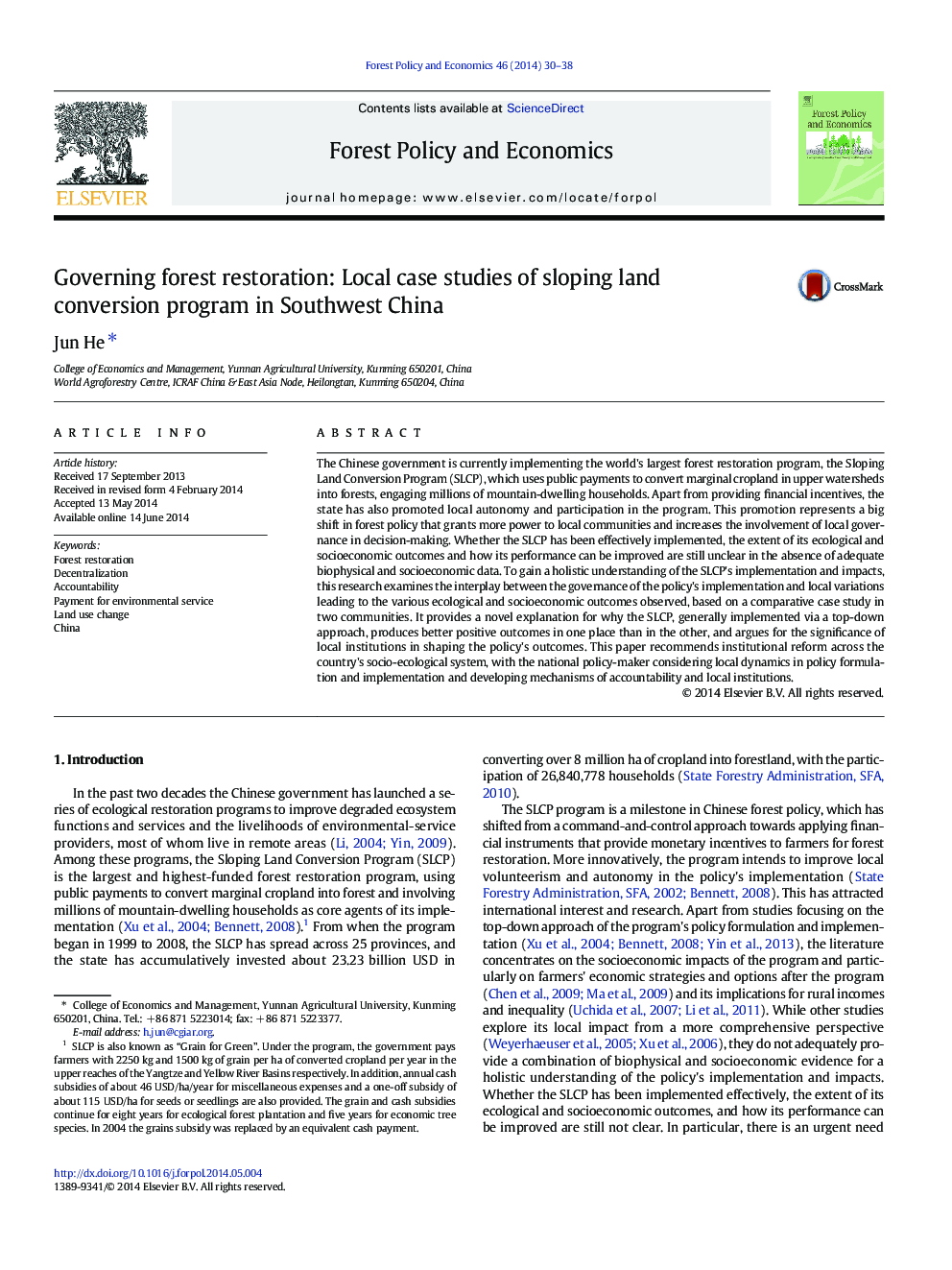| کد مقاله | کد نشریه | سال انتشار | مقاله انگلیسی | نسخه تمام متن |
|---|---|---|---|---|
| 91493 | 159806 | 2014 | 9 صفحه PDF | دانلود رایگان |
• SLCP is hugest forest restoration program with involvement of millions of upland farmers.
• SLCP generally implemented in a top-down approach.
• SLCP can be succeed in one place but fail in the other.
• Local institutions play a significance role in shaping the policy’s outcomes of SLCP.
The Chinese government is currently implementing the world's largest forest restoration program, the Sloping Land Conversion Program (SLCP), which uses public payments to convert marginal cropland in upper watersheds into forests, engaging millions of mountain-dwelling households. Apart from providing financial incentives, the state has also promoted local autonomy and participation in the program. This promotion represents a big shift in forest policy that grants more power to local communities and increases the involvement of local governance in decision-making. Whether the SLCP has been effectively implemented, the extent of its ecological and socioeconomic outcomes and how its performance can be improved are still unclear in the absence of adequate biophysical and socioeconomic data. To gain a holistic understanding of the SLCP's implementation and impacts, this research examines the interplay between the governance of the policy's implementation and local variations leading to the various ecological and socioeconomic outcomes observed, based on a comparative case study in two communities. It provides a novel explanation for why the SLCP, generally implemented via a top-down approach, produces better positive outcomes in one place than in the other, and argues for the significance of local institutions in shaping the policy's outcomes. This paper recommends institutional reform across the country's socio-ecological system, with the national policy-maker considering local dynamics in policy formulation and implementation and developing mechanisms of accountability and local institutions.
Figure optionsDownload as PowerPoint slide
Journal: Forest Policy and Economics - Volume 46, September 2014, Pages 30–38
